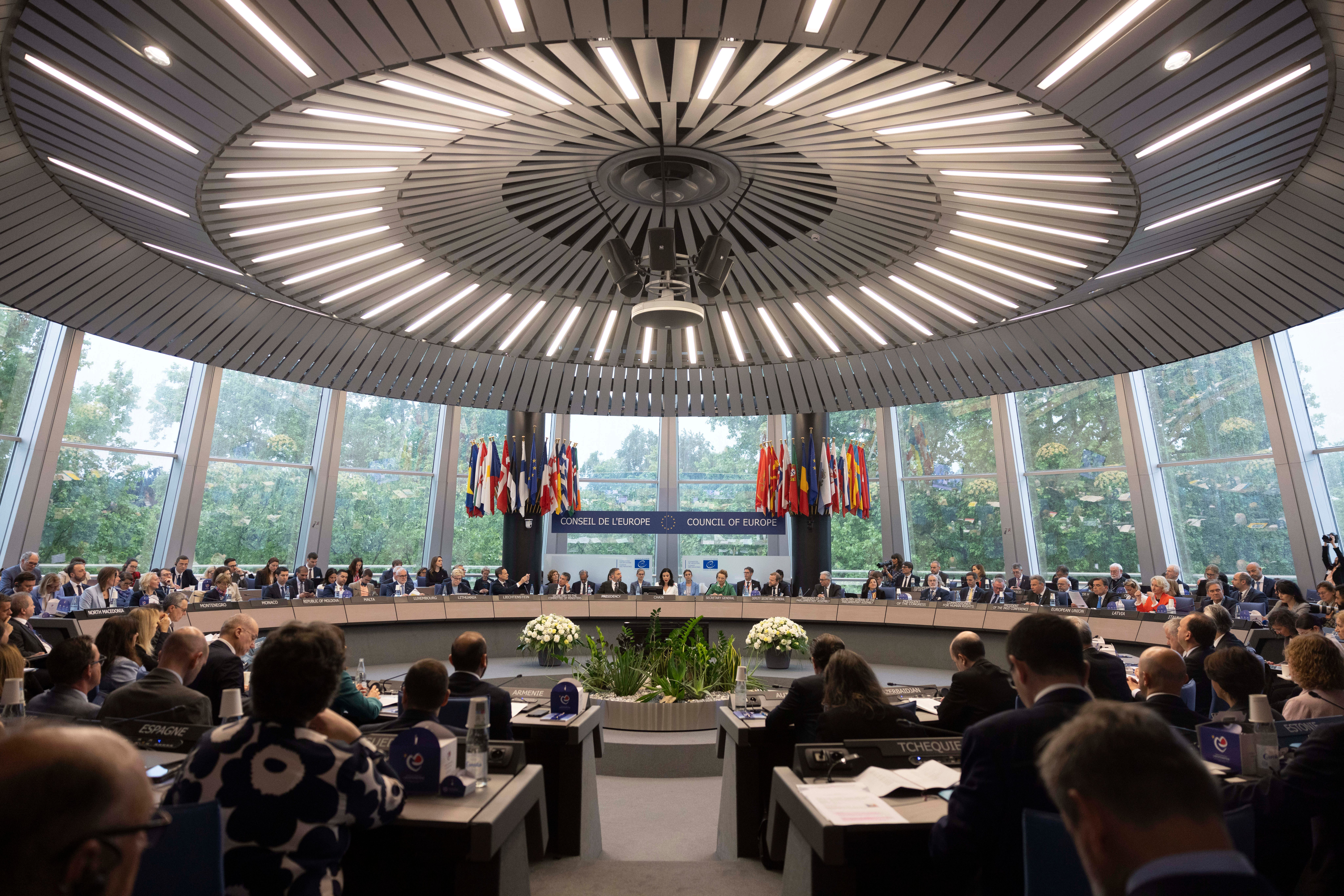Kosovo criticizes Council of Europe for not holding a vote on its membership, blames Serbia lobbying
Kosovo has criticized the Council of Europe’s decision against holding a vote on its membership, saying it deprived its people and especially its ethnic minorities of democratic tools offered by the continent’s top human rights body

Your support helps us to tell the story
From reproductive rights to climate change to Big Tech, The Independent is on the ground when the story is developing. Whether it's investigating the financials of Elon Musk's pro-Trump PAC or producing our latest documentary, 'The A Word', which shines a light on the American women fighting for reproductive rights, we know how important it is to parse out the facts from the messaging.
At such a critical moment in US history, we need reporters on the ground. Your donation allows us to keep sending journalists to speak to both sides of the story.
The Independent is trusted by Americans across the entire political spectrum. And unlike many other quality news outlets, we choose not to lock Americans out of our reporting and analysis with paywalls. We believe quality journalism should be available to everyone, paid for by those who can afford it.
Your support makes all the difference.Kosovo on Friday criticized the Council of Europe 's decision against holding a vote on its membership, saying it deprived its people and especially its ethnic minorities of democratic tools offered by the continent’s top human rights body.
Kosovo’s membership was not on the agenda of the council's foreign ministers meeting after some members had required Kosovo to create an association of Serb-majority municipalities in the country's north before a vote could take place. Kosovo fears such a setup could turn into another Republika Srpska with broad autonomy. Republika Srpska is the name for the part of Bosnia-Herzegovina run by ethnic Serbs.
Kosovo's Foreign Minister Donika Gervalla-Schwarz said some countries chose to side with Serbia after “a lobbying campaign against Kosovo’s membership.”
That deprived "the Republic of Kosovo’s citizens of their rights and possibilities offered by the mechanisms of such an organization, especially for ethnic minority communities and other marginalized ones,” she said.
A day earlier the minister made a last-minute effort to convince Western powers to hold a vote, sending a letter to Theodoros Rousopoulos, the head of the Council of Europe’s Parliament Assembly. It offered a draft bill Kosovo is working on outlining its proposal on Serb-majority municipalities to Kosovo’s Constitutional Court by the end of May.
That was not taken into consideration and “consequently that letter and offer loses actuality and relevance,” she said.
Kosovo has decried the last-minute requirement regarding the association of Serb communities before a vote, saying it fulfilled all the criteria for the council’s membership.
The council’s political affairs committee in March and a vote at its parliamentary assembly in April approved Kosovo’s membership and the foreign ministers’ vote is the last step before Kosovo can be invited to join the Council of Europe.
“The Republic of Kosovo’s membership cannot be stopped even if it is delayed because of any of Kosovo’s opponents or Serbia’s lobbying,” Gervalla-Schwarz said.
The association is a main requirement for Kosovo in its European Union-facilitated normalization talks with Serbia.
The association would coordinate work on education, health care, land planning and economic development in the Serb-majority cities and towns and serve as a bridge with the Kosovo government.
Kosovo has been reluctant to move forward with it despite assurances from the United States and the European Union.
The establishment of the association was first agreed on in Brussels in 2013 and approved by the Kosovo parliament. But Kosovo’s Constitutional Court later deemed it unconstitutional, saying it was not inclusive of other ethnicities and could entail executive powers.
The Constitutional Court must now decide whether a new draft would be in line with Kosovo’s constitution. No new draft has been agreed on so far.
The normalization talks between Kosovo and Serbia have failed to make progress and Brussels has warned both that refusal to compromise jeopardizes their chances of joining the bloc. Serbia doesn’t recognize its former province of Kosovo’s formal declaration of independence in 2008.
The 1998-1999 war between Serbian government forces and ethnic Albanian separatists in Kosovo killed about 13,000 people, mostly Kosovo Albanians. In 1999, a 78-day NATO bombing campaign ended the war and Serbian forces were pushed out.
___
Semini reported from Tirana, Albania.